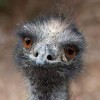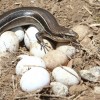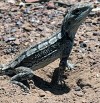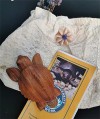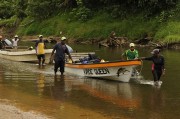
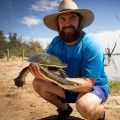
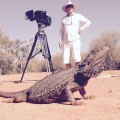


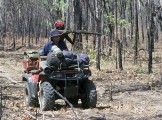
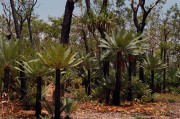
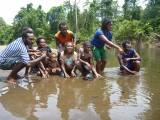

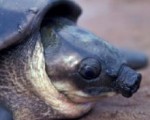
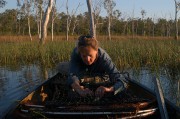
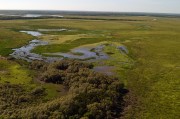


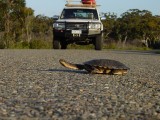
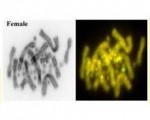
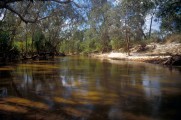

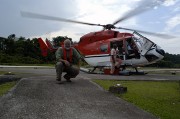
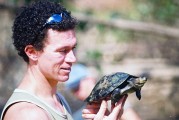
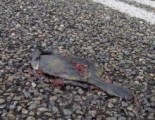

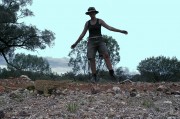

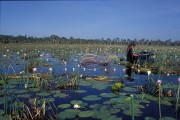
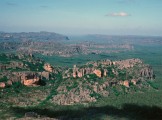
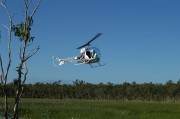
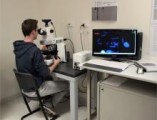

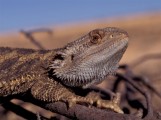


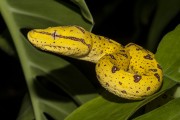


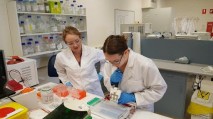
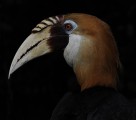
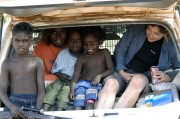

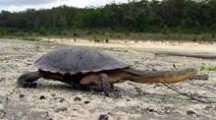
NewsBlog
Microchromosomes central players in vertebrate evolution
Posted in Genomics on Oct 31, 2021
Unlike mammals, most birds and reptiles (birds are reptiles after all) have a series of very small microchromosomes in addition to larger macrochromosomes. In a paper that appeared this week in PNAS, we show remarkable conservatism in the homology among microchromosomes dating back to Amphioxus. This work shows how we are all the product of our history, and not just recent evolutionary history, but with a signature in our genome organization that goes back to the pre-vertebrate days of an Amphioxus-like ancestor.
Species or Lineages within Species
Posted on Oct 10, 2021
Mention species concept nowadays and you are likely throw up their hands and give a negative or dismissive reaction. Nevertheless we have another go in our recent paper which appeared this week in the Biological Journal of Linnean Society. Our framework addresses two cornerstone issues in systematics that are often not discussed explicitly in genomic species discovery: diagnosability and how to determine it, and what criteria should be used to decide whether diagnosable lineages are conspecific or represent different species.
Sex reversal provides new insight to being female
Posted in Pogona Research on Apr 14, 2021
In our recent study reported in PLoS Genetics, we take the unique opportunity to compare gene regulation in the embryonic gonads of the Bearded Dragon with sex determined by chromosomes with that of embryonic gonads where female sex is determined by environmental temperature. This provides a window within which to examine how the cell senses environmental temperature then transduces via ubiquitous signalling pathways to direct the epigenetic processes that govern sex determination.
Alpine lizards reverse sex as it becomes cooler
Posted in Pogona Research on Feb 01, 2021
The alpine skink has XX/XY chromosomes like us, but unlike us the females can be converted to males in the egg by low temperatures. In a paper that appeared today in Heredity, Dumie Dissanayake shows that the frequency of sex reversal varies along an elevational gradient, and that the resultant sex ratio skew will potentially drive the loss of the Y chromosome at the highest elevations. Interesting stuff. https://rdcu.be/ceziZ.
The Hidden Sex Life of the Jacky Dragon
Posted in Pogona Research on Jan 20, 2021
Sex in dragons can be a complicated affair. In a paper published today in the Proceedings of the Royal Society of London (Proceedings B), IAE PhD student Sarah Whiteley and her colleagues present some tantalizing evidence that the TSD Jacky Dragon has an underlying predisposition to be one sex or the other, a predisposition that is over-ridden at extreme incubation temperatures.
Turtles in Trouble
Posted in Turtle Research, Education and Outreach on Jun 22, 2020
Fifty-one international experts today published the most comprehensive study of the extinction risks for turtles and tortoises in Current Biology. Turtles are in trouble. More than half of all 360 turtle and tortoise species face imminent extinction if current trends continue. Australian turtles feature prominently in the list of species of greatest concern.
Piku Biodiversity Network launches
Posted in Turtle Research on Jul 24, 2019
An exciting new NGO has emerged from the Piku program that has operated out of the University of Canberra since 2006. The new NGO is called the Piku Biodiversity Network Incorporated or PBN for short. Its purpose is to promote and enable biodiversity conservation in Papua New Guinea through environmental education, community-led conservation and knowledge generation.
Waking the sleeping dragon
Posted in Pogona Research on Jun 17, 2019
Those of you watching *The Desolation of Smaug* closely might have been surprised to see how quickly Smaug arose from his slumber when disturbed by Bilbo the Burglar. How is it that dragons can arouse so quickly if disturbed during hibernation? We might have the answer in our latest paper in BMC Genomics.
New Guinea -- Last bastion against Chytrid
Posted in Uncategorized on Jun 03, 2019
Earth’s sixth major mass extinction event has begun and amphibians in particular are in peril; over 40% of amphibian species are threatened with extinction. One agent in their demise is chytrid fungus Batrachochytrium dendrobatidis, responsible for the most widespread, disease-induced declines and extinctions in vertebrates to date. New Guinea is the world’s largest tropical island and the last major center of amphibian biodiversity free from chytrid. Deb Bower, Simon Clulow and their colleagues call for urgent, unified, international, multidisciplinary action to prepare for the arrival of chytrid in New Guinea, to prevent or slow its spread within the island after it arrives, and to limit its impact upon the island’s frog populations.
mtGenomes resolve longstanding issues in turtle taxonomy
Posted in Turtle Research on Apr 09, 2019
Who would have thought you could pull DNA from historical museum specimens dating back to 1796 and sequence it? In a paper that came out today in Scientific Reports we use whole mitochondrial sequences from living populations and assembly of fragments of DNA from museum type specimens to bring the two together and solve some longstanding taxonomic enigmas.
